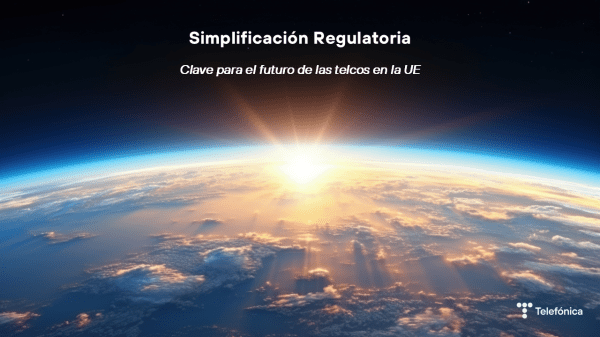- Se otorgarán más de 300.000€ a proyectos para detectar sesgos algorítmicos y discriminatorios y desarrollar herramientas que detecten amenazas de privacidad sobre localización o IoT.
Barcelona, 27 de marzo, 2017.- Data Transparency Lab (DTL) abre la convocatoria del Programa de Becas 2017. Por tercer año el DTL dará apoyo a la investigación para el desarrollo de herramientas de transparencia y privacidad online que permitan empoderar a los usuarios y recuperar el control de sus datos personales.
El DTL es una iniciativa de Telefónica, AT&T, Mozilla, INRIA y MIT Connection Science que otorgará hasta 6 becas de hasta 50.000€ cada una a proyectos que permitan desarrollar herramientas para usuarios finales, grupos de interés, reguladores y gobiernos. La presente convocatoria centra su interés en la detección de sesgos algorítmicos y discriminatorios, así como el desarrollo de herramientas que detecten amenazas de privacidad tales como la exposición de la localización de usuarios o de datos derivados de dispositivos del internet de las cosas (IoT). El objetivo de las becas es cubrir total o parcialmente el trabajo de un Investigador Principal y al menos un estudiante de Doctorado durante aproximadamente un año. Los candidatos deberán describir claramente qué es lo que su herramienta puede hacer, quién se puede beneficiar de ella, cuál es la novedad y la excelencia técnica de la propuesta así como justificar su experiencia en ese ámbito.
Para los proyectos de ámbito más amplio, DTL ofrecerá como novedad una vacante de postdoctorado que tendrá lugar en INRIA (Francia). Además, el proyecto Databox, financiado por el EPSRC (Engineering and Physical Sciences Research Council) con la colaboración del DTL, ofrecerá hasta dos plazas de postdoctorado en la Queen Mary University de Londres y la universidad de Cambridge.
La convocatoria está abierta desde el 15 de marzo y el plazo de inscripción termina el 10 de mayo. Los candidatos deberán hacer disponible su software online en los doce meses siguientes tras recibir la beca y podrán presentar sus proyectos en la conferencia anual del DTL que tendrá lugar en noviembre en París.
Los proyectos deberán ser presentados en inglés y serán revisados por un comité de 25 representantes de destacadas instituciones académicas, empresas, organismos reguladores y agencias gubernamentales internacionales (ver bases de la convocatoria para listado completo). El comité será presidido por Claude Castelluccia, Senior Research Scientist de INRIA y Nikolaos Laoutaris, Chief Scientist de Telefónica. El comité anunciará los proyectos seleccionados el 15 de junio de 2017.
Inicio de convocatoria: 15 de marzo
Fin de la convocatoria: 10 de mayo
Anuncio de los becados: 15 de junio
Firma del contrato: Julio-septiembre 2017
Más información: www.datatransparencylab.org
Algunas herramientas que han surgido a través de las becas DTL son el Facebook Data Valuation Tool, proyecto de la Universidad Carlos III para calcular las ganancias que Facebook obtiene mientras navegamos en la red social o ReCon, una herramienta desarrollada por la Northeastern University que permite consultar la información que las aplicaciones móviles filtran a terceros y cómo somos rastreados a través de esta información.
Bases de la convocatoria (Los proyectos solo podrán ser presentados en inglés)
The Data Transparency Lab is a collaborative effort between universities, businesses and institutions to support research in tools, data, and methodologies for shedding light on the use of personal data by online services and to empower users to be in control of their personal data online. DTL will award in 2017 up to 6 research grants as well as up to 3 postdoc positions to support the work of applicants from academic institutions worldwide.
AWARD GRANTS
The grants come in the form of a lump sum of up to 50,000 Euro that will be awarded to successful applicants for pursuing research that will lead to the development of transparency software tools for end users, interest groups, regulation authorities, and governments. The following list of topics provides several examples of tools that we are looking to support. In this third year of the program we are particularly interested in tools for detecting algorithmic bias and discrimination as well as in tools for exposing location and other IoT related privacy threats.
Topics of interest include, but are not limited to:
- Detection and analysis of algorithmic bias and discrimination, personal filter-bubbles, societal polarization, etc.
- Detection and analysis of fake news and other manipulation techniques through social and other media.
- Detection and analysis of large scale censorship/filtering efforts.
- Detection and analysis of anti-competitive practices in online platforms.
- Detection and analysis of large scale (commercial or governmental) surveillance/monitoring efforts.
- Detection and analysis of geoblocking in e-commerce, content distribution services, etc.
- Detection and analysis of tracking, including advanced finger-printing methods.
- Detection of Personally Identifiable Information (PII) leakage.
- Detection and analysis of online behavioral targeting on advertising, search, recommendation, etc.
- Detection and analysis of location tracking.
- Detection and analysis of cross device/platform tracking.
- Reverse engineering online pricing (e-commerce, spot/surge pricing for cloud, transportation, accommodation and other services).
- Transparency of physical location where personal data are stored as well as of network paths crossed during transfers.
- Transparency challenges around new crypto-currencies and blockchain technologies.
- Transparency of Artificial Intelligence and Machine learning algorithms.
- Explainable Artificial Intelligence.
- HCI challenges in demonstrating transparency/privacy/algorithmic bias concepts to user.
The grants are aimed towards supporting fully or partly the work of a Principal Investigator (PI) and at least one PhD student or postdoc for a time duration of approximately a year. Submitted proposal need to clearly describe:
- What will the produced software tool do?
- Who will benefit from using it (end user, regulators, data protection authorities, privacy / anti-discrimination activists)?
- What is the intended plan for recruiting users?
- What is the novelty & technical excellence of the proposal?
- Justify the technical expertise of the applicants in the area
Successful applicants are expected to present their results in the annual DTL Conference, make their software available online (the latest 12 months after receiving the grant), and acknowledge the funding source. Reporting obligations will be minimal and successful applicants will be eligible to apply for additional follow up funding to further curate their tool. Proposals will be selected based on their novelty and their commitment to develop and deploy tools. Proposals that propose a research project without implementation of a prototype/tool won’t be considered (the postdoc program -see below- should then be considered). Proposals already funded by other sources won’t be considered.
Applications will be evaluated by a committee of experts composed of:
- Committee Chairs: Claude Castelluccia (INRIA) and Nikolaos Laoutaris (Telefónica)
- Committee Members:
- José Luis Agúndez – AT&T
- Nataliia Bielova – INRIA
- Joe Calandrino – Federal Trade Commission
- David Choffnes – Northeastern University
- Yves-Alexandre De Montjoye – Imperial College London
- Sorelle Friedler – Haverford College
- Phillipa Gill – University of Massachusetts Amherst
- Oana Goga – Max Planck Institute for Software Systems
- Saikat Guha- Microsoft Research India
- Krishna Gummadi – Max Planck Institute for Software Systems
- Antonio Guzman – Telefónica
- Hamed Haddadi – Queen Mary University of London
- Marit Hansen – Unabhängiges Landeszentrum für Datenschutz Schleswig-Holstein
- Jaap-Henk Hoepman – Radboud University Nijmegen
- Demosthenes Ikonomou – European Union Agency for Network and Information Security
- Balachander Krishnamurthy – AT&T Labs Research
- Nick Nikiforakis – Stony Brook University
- Javier Parra Arnau – Universitat Rovira i Virgili
- Sylvain Peyronnet – Qwant
- Josep Maria Pujol – Cliqz
- Salvatore Ruggieri – Università di Pisa
- Vincent Toubiana – Commission Nationale de l’Informatique et des Libertés (CNIL)
- Christo Wilson – Northeastern University
- Joss Wright – Oxford Internet Institute
Important dates for the submission/evaluation process are provided below:
- Submission deadline: May 10th
- Notification of acceptance: June 15th
- Contract signing: July-Sept 2017
The application process must include:
- A main description of up to 3 pages (9pt font) explaining succinctly the main idea, its relevance to DTL, what will be produced and the main innovation with respect to current state of the art in the area.
- CV of Principal Investigator and main student (2 pages each).
Both documents should be submitted as a single PDF file along with the information of the applicants at the submission site of DTL at: www.datatransparencylab.org
More details about the submission and evaluation process can be found in the DTL Award Grants Handbook
POSTDOC POSITIONS [NEW!]
In addition to the standard DTL Call for Projects, INRIA, Queen Mary University of London and other academic affiliates of DTL will fund up to 3 grants to work on one of the DTL topics (see above for non-exhaustive list).
The nature of the expected work is to contribute to the research of data and/or algorithmic transparency. Although the development of an experimental prototype would be appreciated, it is not a requirement for this position.
Candidates must have defended their PhD thesis in Computer Science (or related topics) at the beginning of the contract of employment. The application must include:
- A main description, of up to 3 pages (9pt font), of the research statement and its relevance to DTL.
- The candidate’s CV, a list of the candidate’s publications as well as the two most significant publications provided in full.
- The names of 2 references.
Both documents should be submitted as a single PDF file along with the information of the applicants at the submission site of DTL at: www.datatransparencylab.org
For conditions of post-doc positions at QMUL and other institutions check back in this page during the coming weeks: www.datatransparencylab.org









